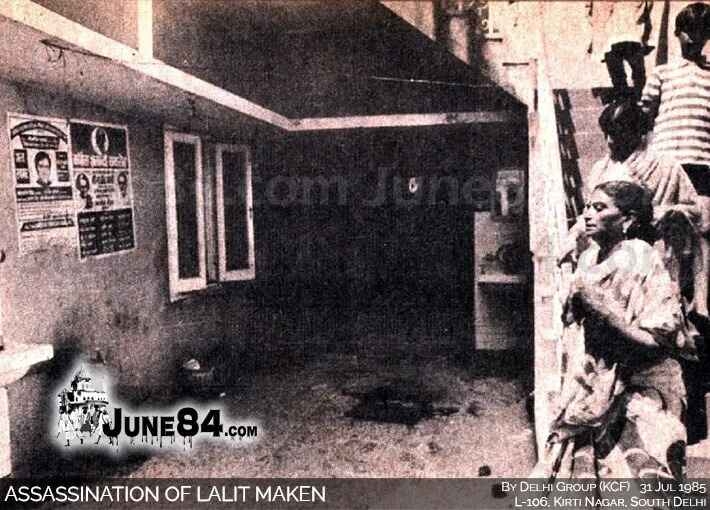Emotional Truth Behind Lalit Maken Assassination

Lalit Maken was a young and ambitious leader who quickly became one of the most recognized faces of the Indian National Congress in the early 1980s. His passion for public service and his ability to connect with the youth gave him a strong base of supporters. Sadly, his promising journey ended abruptly when Lalit Maken was assassinated in 1985, an incident that highlighted the volatility of Indian politics during that era.
Early Background and Family Life
Growing up in Delhi within a politically active family, Lalit Maken was naturally drawn toward leadership. He studied in the capital and carried with him the values of service and commitment to the people. Known for his approachable style and forward-looking ideas, he became a symbol of youthful leadership in India, offering hope to many during a period of uncertainty.
Role in the Congress Party
Within a short span, Lalit Maken made significant strides in the Congress party. His speeches often addressed the importance of empowering the younger generation and creating opportunities for them in governance. Party members recognized him as a leader with both vision and energy. However, his growing influence also placed him in a dangerous spotlight during a time when political tensions were running high.
The Assassination of Lalit Maken
On July 31, 1985, Lalit Maken was shot outside his home in Delhi. His wife, Geetanjali, daughter of future President Shankar Dayal Sharma, also lost her life in the attack. Investigations suggested that Sikh militants carried out the killing in retaliation for the 1984 riots. The assassination was not just the loss of a leader but also a brutal reminder of how personal and political lives intertwined during those violent years.
The Shadow of 1984 Riots
The story of Lalit Maken assassinated cannot be separated from the grim backdrop of the 1984 anti-Sikh riots. After Indira Gandhi’s assassination, violence erupted across India, causing immense suffering. Allegations against several Congress leaders, including Lalit Maken, created long-lasting resentment. Whether proven or not, these accusations left him vulnerable in an atmosphere filled with distrust and anger.
Reactions and Investigations
The murder led to immediate investigations, with law enforcement linking the crime to extremist groups. Several suspects managed to flee abroad, which slowed the pursuit of justice. For many, this case showed how weak the security apparatus was during the mid-1980s. It also underlined the consequences of unresolved communal wounds that fueled cycles of revenge.
Effect on the Congress Party
The assassination of Lalit Maken was a devastating loss for the Congress party. A young and promising leader was lost at a time when his contributions were most needed. His death deepened divisions in the political sphere and brought further scrutiny of the party’s role during the riots. The Congress was forced to reckon with the realities of political violence and its impact on both leadership and public trust.
Family Connections and Legacy
The tragedy of Lalit Maken’s assassination also extended to his family. Geetanjali’s death in the same attack left a lasting scar, while their daughter, Avantika Maken, later entered politics to carry forward the family’s legacy. The family remains a part of India’s political story, remembered for their sacrifices and resilience.
Political Significance of Lalit Maken Assassinated
The killing of Lalit Maken remains a symbolic reminder of the political turbulence of the 1980s. Historians often highlight it as one of the defining events that revealed the dangers of communal polarization. His assassination is remembered not just as a personal tragedy but also as a reflection of the broader challenges India faced in maintaining political stability and communal harmony.
Remembering Lalit Maken’s Contributions
Even after decades, Lalit Maken continues to be remembered by his supporters and political observers. His leadership style, energy, and focus on youth empowerment left a lasting impression. His life is often described as a story of potential that was never fully realized. Remembering him today serves as a lesson on the importance of justice, peace, and unity in building a stronger democracy.
Conclusion: Lessons from a Tragic Loss
Lalit Maken’s life and untimely death represent both the promise and the fragility of political leadership in turbulent times. From being a rising star of the Congress to becoming a victim of assassination, his story reflects the dangers of communal hatred and political revenge. Remembering Lalit Maken today offers important lessons about reconciliation, unity, and the need to protect democratic values from violence.
- Questions and Answers
- Opinion
- Motivational and Inspiring Story
- Technology
- Live and Let live
- Focus
- Geopolitics
- Military-Arms/Equipment
- الحماية
- Economy
- Beasts of Nations
- Machine Tools-The “Mother Industry”
- Art
- Causes
- Crafts
- Dance
- Drinks
- Film/Movie
- Fitness
- Food
- الألعاب
- Gardening
- Health
- الرئيسية
- Literature
- Music
- Networking
- أخرى
- Party
- Religion
- Shopping
- Sports
- Theater
- Health and Wellness
- News
- Culture

